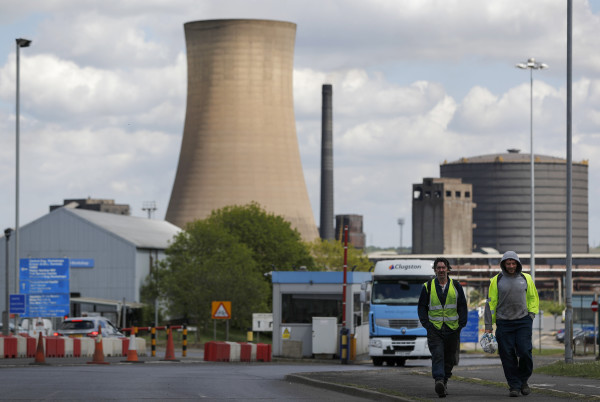

Advisers who turned out defined benefit transfer recommendations like "sausage machines" need to bear the blame – and suffer the consequences – for the British Steel Pension Scheme advice debacle.
This is the belief of the majority of respondents to FTAdviser's latest poll, which asked 'Who is most to blame for the British Steel Pension Scheme advice scandal?'
Some 59 respondents voted for 'the advisers', commenting on Twitter and via email that advisers who preyed on the steelworkers in Scunthorpe and Wales at a vulnerable time in their financial affairs should be censured by the regulators.
One adviser called them "criminal advisers who entered the vacuum" and said advice networks who restricted adviser engagement in 2017 for "fear of redress" were also culpable for failing to help many steelworkers at a critical juncture.
>A number of IFA firms turned into sausage machines to process the transfers.
Some respondents said there was too little time to provide proper due diligence to the steelworkers, which is where the less scrupulous advisers were able to swoop down and pick off the pension scheme members in such numbers.
According to the Financial Conduct Authority, at least 7,700 former BSPS members took advice to transfer out of the DB scheme, and it urged them to seek a review of the financial advice they received back in 2017.
In March this year, the FCA told FTAdviser it was now pursuing "numerous" enforcement actions into suspected serious misconduct by companies and individuals who recommended transfers out of the old BSPS.
However, as advisers such as Al Rush, principal of Echelon Wealthcare, have claimed, regulatory action is coming too little, too late – with many advisers exiting the industry and letting claims default onto the Financial Services Compensation Scheme.
Rush has also warned of some advisers still targeting their former steelworker clients, either from their original businesses or having joined or set up new companies, despite the clients pursuing claims against the advice they received.
For him, the regulator needs to accept culpability and take definitive, decisive action.
This accords with 46 respondents to the FTAdviser poll, who say the blame for the BSPS debacle lies with the way in which the various regulators have handled the situation, not just when the red flags were first raised in 2017 and there was still an opportunity to intervene to prevent further unsuitable transfers, but also in the years that have followed.
Corporate responsibility
Only 16 respondents felt the company itself (Tata Steel) was to blame for the way in which it restructured the business and created a new scheme.
As reported by FTAdviser, in March 2016, Tata Steel was examining options to restructure the business, which included decoupling the £14bn DB pension scheme from the company.
In May 2016, the chairman of the trustees wrote to members following a government review of legislation to allow Tata Steel to create a new scheme: BSPS2.
Trustees said, if allowed, it would be a significantly better outcome than falling into the Pension Protection Fund, which the letter said was a "poor outcome".
That phrase stuck in members’ minds, and the results of FTAdviser's latest poll shows many still feel the trustees should shoulder their share of the blame for the debacle that ensued.
According to our poll, 33 respondents think the trustees were fully at fault – the third highest category.
Who else is to blame?
The poll had 23 respondents citing 'other'. When asked to specify, the majority of respondents said 'all of the above' –regulators, advisers, Tata Steel and the trustees – were to blame in equal measure.
One respondent wrote: "All of the above. They all played their part.
"The trustees and company were keen to offload liabilities and offered inflated cash-equivalent transfer values as a carrot to scheme members; the regulator sat back for well over a year and was reactive; and a number of IFA firms turned into sausage machines to process the transfers."
But many others also cited the government in their responses, saying it should bear the blame for rushing to introduce the pension freedom regime in 2015 without any proper safeguards or adequate consultation.
One respondent said: "The government [is to blame] for introducing freedoms in the first place without adequate regard for the consequences; thereafter all of the above [advisers, trustees, the regulators] to one degree or another."
simoney.kyriakou@ft.com



